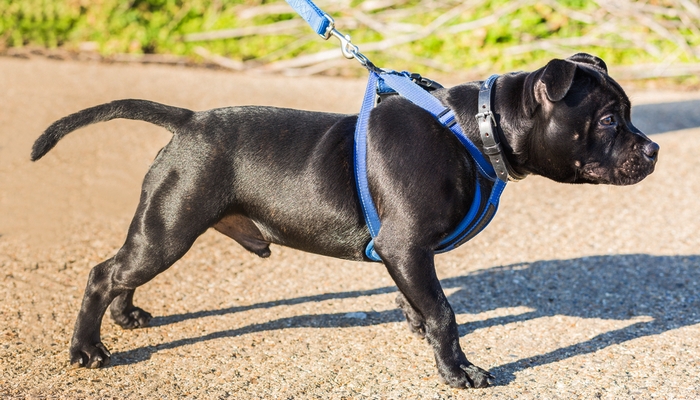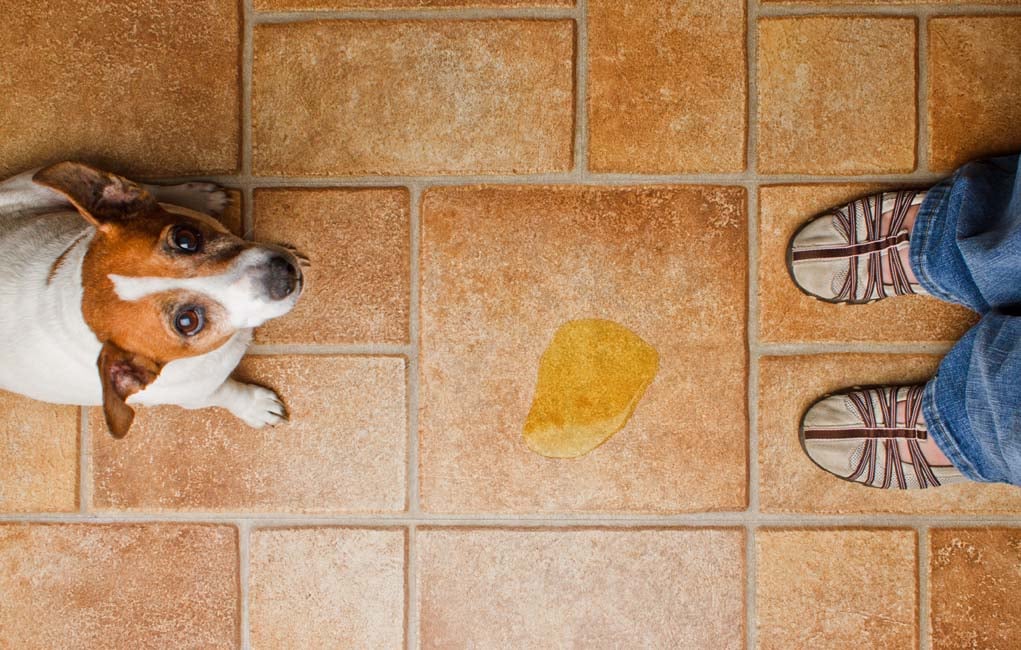Raising a puppy is similar to raising a child. You have to watch your puppy at all times or they will get into dangerous things, cause trouble with other pets or even put themselves in danger. I've tested these hacks to fix puppy behavior problems with many pups over the years, and they're guaranteed to make raising a puppy much easier for any pet owner.
Fixing behavior problems isn't something that can be done with a few simple hacks. It's about creating a safe routine that will get your new adventure off to a great start. It's important to nip behavior problems in the bud in order to keep your new friend safe and provide yourself with peace of mind.
Always be prepared for accidents and injuries as much as possible. Keep emergency phone numbers like your veterinarian and the pet poison control helpline by the phone, and keep essential first-aid items and medical records handy.
6 Hacks To Fix Puppy Behavior Problems FAST!
1. Crate Train
Crate training puppies has several advantages, but most commonly it is used for potty training and keeping your pup out of trouble.When pet owners use dog crates effectively, it can become an invaluable tool.
Once trained and housebroken, you can even keep the kennel open and leave it in a common area so that your puppy can have a place to relax that is all his own. You should begin crate your training your puppy from the very first day you bring him home. This will help him acclimate as quickly as possible to the crate and start forming good habits right away.
If you allow your pup to roam free, sleep in your bed and generally have free range of your home for a few days before beginning your crate training, it will make it much harder to get him used to staying in a crate. Consistency is key with any type of dog training!
For more information on how to crate train your puppy, check out our numerous resources on the subject:
- Puppy Crate Training Schedule
- Crate Training A Puppy: 20 Tips and Tricks
- How To Crate Train A Dog (video guide)
- How To Choose the Right Size Dog Crate (video guide)
2. Music Therapy
A 2016 study has shown that playing audiobooks helped dogs in shelters feel more calm and well-rested. The auditory experience was also effective in easing anxiety in domestic pets, as the sound of the human voice brought a soothing relief.
The same can be said for playing music for your pup. Did you know that some companies make music specifically for dogs? It is made with special frequencies that help soothe a dog, calm him and help him relax. This doggy music could help to calm a hyper pup or just help your new pet feel more comfortable in your home.
3. Create a Designated Potty Place
When you take your puppy outside to go to the bathroom, take him to the same place each time. A dog’s sense of smell is over 10,000 times greater than a humans. Your new dog will be able to smell the potty area as you’re walking towards it. He’ll quickly associate this area as a designated bathroom zone, and this will make potty training your pup much easier.
ALSO: 10 Must-Have Puppy Products – Easy Shopping Guide for Expecting Pet Parents
 4. No-Pull Wooden Spoon Hack
4. No-Pull Wooden Spoon Hack
One of my favorite hacks to fix puppy behavior problems is using a wooden spoon to stop your pup from pulling on his leash. Apply some peanut butter to the end of a wooden spoon. Hold the spoon out to the side of your body where you want your pup to walk while on a lead.
Your dog will focus on the peanut butter and walk nicely beside you without pulling. Over time, you can reduce the amount of peanut butter that you use until you gradually remove the treat all together. Your dog will quickly learn to walk nicely next to you without a lot of hassle.
5. Make Homemade Puzzle Toys and Games
Although physical exercise is important, it's not all that our dogs need. Mental stimulation is important too. A bored puppy can become quite a nuisance.
Studies have shown that playing with a toy that makes a dog think and use abilities he already has in a new way will tire him as much as a walk around the block!
All you'll need is a few small cardboard boxes and/or clean, empty bottles and a motivational treat. If your dog is not highly motivated, try using a treat with a strong odor like lunch meat or jerky treats. The stronger the smell, the easier it will be for your dog to find the hidden item.
Put treats underneath all the boxes (or inside all of the bottles) but one. Your dog should sit and wait for you (which my dog did NOT do very well). If need be, you can anchor your dog's leash to something to keep him from following you around to all the boxes.
Be sure to touch all the boxes, even the ones that you don't hide treats under. Let your dog sniff each box and figure out how to tip it over and reach the treat underneath. When he finds a treat, use a lot of praise and encouragement to show him that he's doing a great job!
Although you may need to give him subtle directions at first, try to do as little as possible to help your dog with his search. The challenge is what makes it exciting. At first your pup may not realize this, but his natural instincts will kick in quickly, and he'll realize how much fun games like this can be.
6. Keep A Strict Routine
A routine helps a puppy get to know your family, your home and your lifestyle. Do your best to keep meal time, play time and daily walks at about the same time each day. You will also need to create a structured sleep schedule for your pup. He should go to bed around the same time every night and wake up around the same time every day.
The most important thing you need to do when you bring your puppy home is to spend plenty of time with him until he gets used to your family and your environment. If at all possible, bring the puppy home when you can spend a few days with him, such as a Friday afternoon, or possibly take a couple of days off work. Always be patient with the puppy and stay consistent with your training.
READ NEXT: Top 25 Best Puppy Toys for Teething and Mental Stimulation













